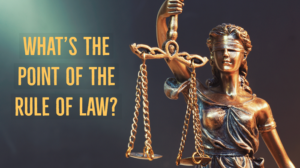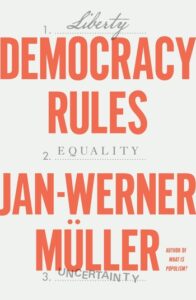 The Polish government’s efforts to prevent the European Union from enforcing “rule of law” conditionality on future funding is not just a reflection of its illiberal nature, says Sławomir Sierakowski (right), founder of the Krytyka Polityczna movement. Rather, the ruling coalition is in the throes of a subtle but all-consuming fight over who will emerge as the future face of Polish populism, he writes for Project Syndicate.
The Polish government’s efforts to prevent the European Union from enforcing “rule of law” conditionality on future funding is not just a reflection of its illiberal nature, says Sławomir Sierakowski (right), founder of the Krytyka Polityczna movement. Rather, the ruling coalition is in the throes of a subtle but all-consuming fight over who will emerge as the future face of Polish populism, he writes for Project Syndicate.
Hungary and Poland’s decision to block $2.2 trillion in European Union funds — including emergency pandemic financial aid — has deepened an existential crisis in the 27-member block over the fundamental liberal values it is supposed to represent, the Post adds:
 The contention for Poland and Hungary is a clause that links the money to upholding the “rule of law” — judicial and political norms that underpin democracies — at a time when Brussels is censuring both for letting it slide….As leader of the E.U.’s rotating presidency, German Chancellor Angela Merkel has been under pressure to find a solution that will persuade the populist leaders of the two countries to drop their vetoes and unlock the funding in time for an E.U. summit on Thursday.
The contention for Poland and Hungary is a clause that links the money to upholding the “rule of law” — judicial and political norms that underpin democracies — at a time when Brussels is censuring both for letting it slide….As leader of the E.U.’s rotating presidency, German Chancellor Angela Merkel has been under pressure to find a solution that will persuade the populist leaders of the two countries to drop their vetoes and unlock the funding in time for an E.U. summit on Thursday.
Germany’s Angela Merkel has deservedly earned praise for her opposition to assaults on shared liberal-democratic values and international institutions, and for her determination in dealing with the pandemic, notes Jan-Werner Mueller, a fellow at the Berlin Institute of Advanced Study, and the author of the forthcoming Democracy Rules.
 But when Merkel steps down next year, she will have left behind no coherent framework to support either the eurozone or Europe’s aspirations of becoming a global “normative power” capable of promoting democracy and the rule of law, he writes for Project Syndicate:
But when Merkel steps down next year, she will have left behind no coherent framework to support either the eurozone or Europe’s aspirations of becoming a global “normative power” capable of promoting democracy and the rule of law, he writes for Project Syndicate:
Its advocacy of such values will ring hollow as long as it tolerates member states that no longer meet democratic criteria. Merkel’s legacy would look different if she were to face down Europe’s self-declared illiberals. If she does not, she will have shown that values are negotiable, and that the EU is easily blackmailed.
Over the past five years, the EU has repeatedly failed to prevent PiS from subjugating independent institutions, including the judiciary and the media, and laying the foundation for an authoritarian “illiberal democracy,” adds Sierakowski, a former NED Reagan-Fascell fellow. In finally responding with the rule-of-law mechanism, the EU is testing not just Poland but also itself. Like Poland, it may ultimately choose economic benefits over the rule of law – and regret it in the long run.
 The Polish government’s efforts to prevent the European Union from enforcing “rule of law” conditionality on future funding is not just a reflection of its illiberal nature, says Sławomir Sierakowski (right), founder of the Krytyka Polityczna movement. Rather, the ruling coalition is in the throes of a subtle but all-consuming fight over who will emerge as the future face of Polish populism, he writes for Project Syndicate.
The Polish government’s efforts to prevent the European Union from enforcing “rule of law” conditionality on future funding is not just a reflection of its illiberal nature, says Sławomir Sierakowski (right), founder of the Krytyka Polityczna movement. Rather, the ruling coalition is in the throes of a subtle but all-consuming fight over who will emerge as the future face of Polish populism, he writes for Project Syndicate.
 The contention for Poland and Hungary is a clause that links the money to upholding the “rule of law” —
The contention for Poland and Hungary is a clause that links the money to upholding the “rule of law” —  But when Merkel steps down next year, she will have left behind no coherent framework to support either the eurozone or Europe’s aspirations of becoming a global
But when Merkel steps down next year, she will have left behind no coherent framework to support either the eurozone or Europe’s aspirations of becoming a global 





